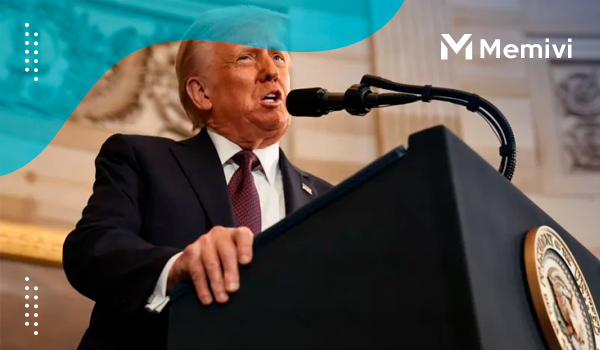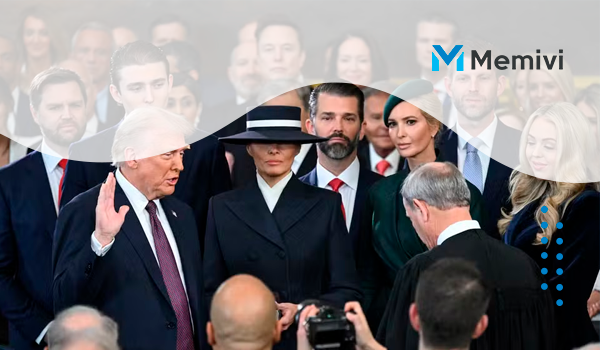
Donald Trump’s inauguration in the US on Monday, January 20, 2025, marks a pivotal moment in American history. As the nation anticipates the formal swearing-in of the new administration, understanding the significance of this date and what it represents for the country’s future becomes essential. This article will delve into the journey leading up to the inauguration, explore the historical context of this date, and outline what the public and experts expect from Trump’s term. Whether you’re a political enthusiast or a casual observer, these insights will provide a comprehensive overview of the inauguration’s impact.
The Road to the Inauguration
The journey to the inauguration involves several crucial steps. After the election results, the president-elect begins preparing for the transition to office. This period is critical, as it allows the incoming administration to lay the groundwork for their policy agenda.
Transition Planning Period
During this transition phase, the president-elect assembles a team to handle key appointments, including cabinet members and advisors. It’s essential to ensure a smooth transfer of power and continuity of government operations.
Coordination with the Outgoing Administration
Communication between the outgoing administration and the new team facilitates the handover of important responsibilities and information. The National Security Council plays an important role in briefing the president-elect on major security issues. As January 20 approaches, inauguration logistics become a priority. The planning involves security measures, public attendance, and ceremonial arrangements. Every detail is meticulously coordinated to ensure a seamless event. Organizers work alongside law enforcement agencies to guarantee safety for everyone involved.
Historical Significance of January 20

January 20th holds a unique place in American history as a significant date due to the Inauguration Day tradition. This day is when the new president takes the oath of office and embarks on their journey as the nation’s leader. In modern American politics, transitions of power occur on this date following elections.
The tradition was established by the 20th Amendment to the United States Constitution, ratified in 1933. This amendment changed the inauguration date from March 4 to January 20, helping to shorten the lame-duck period. It has since become synonymous with the peaceful transfer of power.
Throughout history, Inauguration Days often serve as a reflection of the nation’s current political climate and have witnessed many notable moments. These include speeches that outline visions for the coming presidency, signifying policy changes or ideological shifts for the country. For Donald Trump, who is set for inauguration on January 20, 2025, this day renews a pivotal moment in his political career.
Having already served as president, Trump’s second inauguration signifies another chapter in his influence within American politics. It’s a day marking the beginning of a new administration, with expectations tied to promises made during the election campaign. Thus, January 20 acts not only as the beginning of a presidency but also a continuation of the nation’s democratic journey.
Expectations for Trump’s Term
As Donald Trump assumes office on January 20, 2025, expectations are varied among political analysts and the general public. Considering his previous tenure, there is a focus on economic policies, such as tax reforms and deregulation strategies, aimed at stimulating growth. Additionally, Trump’s approach to foreign policy is anticipated to center on America First, possibly reshaping international alliances and trade agreements. Healthcare reform is also on the agenda, with anticipated efforts to modify existing legislation. While some look forward to potential job creation and strengthened national defense, others are concerned about issues like climate policy and social programs, predicting both challenges and opportunities in the coming term.
Public Reaction and Opinion
The inauguration of Donald Trump as President of the United States in January 2025 sparked a wide array of public reactions and opinions. Across different demographic groups, there were varied feelings ranging from enthusiasm to apprehension.
Positive Reactions
Among Trump’s supporters, there was a strong sense of optimism and excitement. Many appreciated his promises to focus on economic growth and national security. Social media platforms were flooded with messages of support, echoing the belief that Trump would bring about substantial changes.
Voices of Concern
Conversely, there was also concern and skepticism from various communities. Opponents often highlighted worries over potential policy shifts and the impact on international relations. Protests were organized in major cities, showcasing the divide in public opinion.
Media Coverage
Media outlets played a significant role in shaping public perception. Coverage ranged from analytical pieces dissecting Trump’s proposed policies to opinion articles reflecting diverse viewpoints. Channels aimed to capture the atmosphere in the nation while providing a balanced perspective.
A Global Perspective
Internationally, Trump’s inauguration was met with mixed reactions. Some leaders expressed a willingness to collaborate on certain issues, whereas others approached the news with caution, reflecting global implications.
Such varied perspectives indicate the complexity of Trump’s ascent to the presidency and underscore the deep divisions within the American public.


 Diversification Benefits: Explore Risks with Alternative Investments
Diversification Benefits: Explore Risks with Alternative Investments  How to Detect Unauthorized Transactions Fast and Securely
How to Detect Unauthorized Transactions Fast and Securely  Foreign Transaction Fees: How They Affect Travelers’ Budgets
Foreign Transaction Fees: How They Affect Travelers’ Budgets